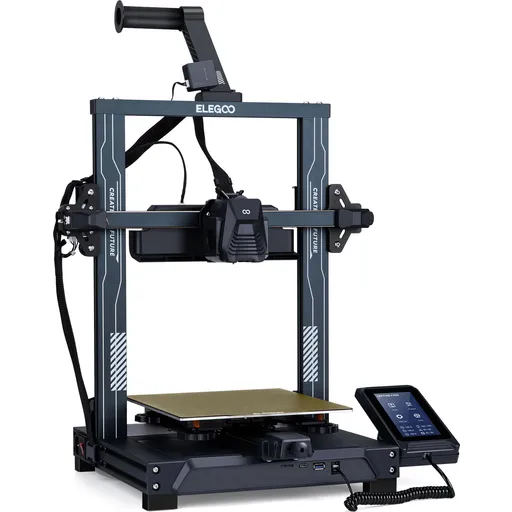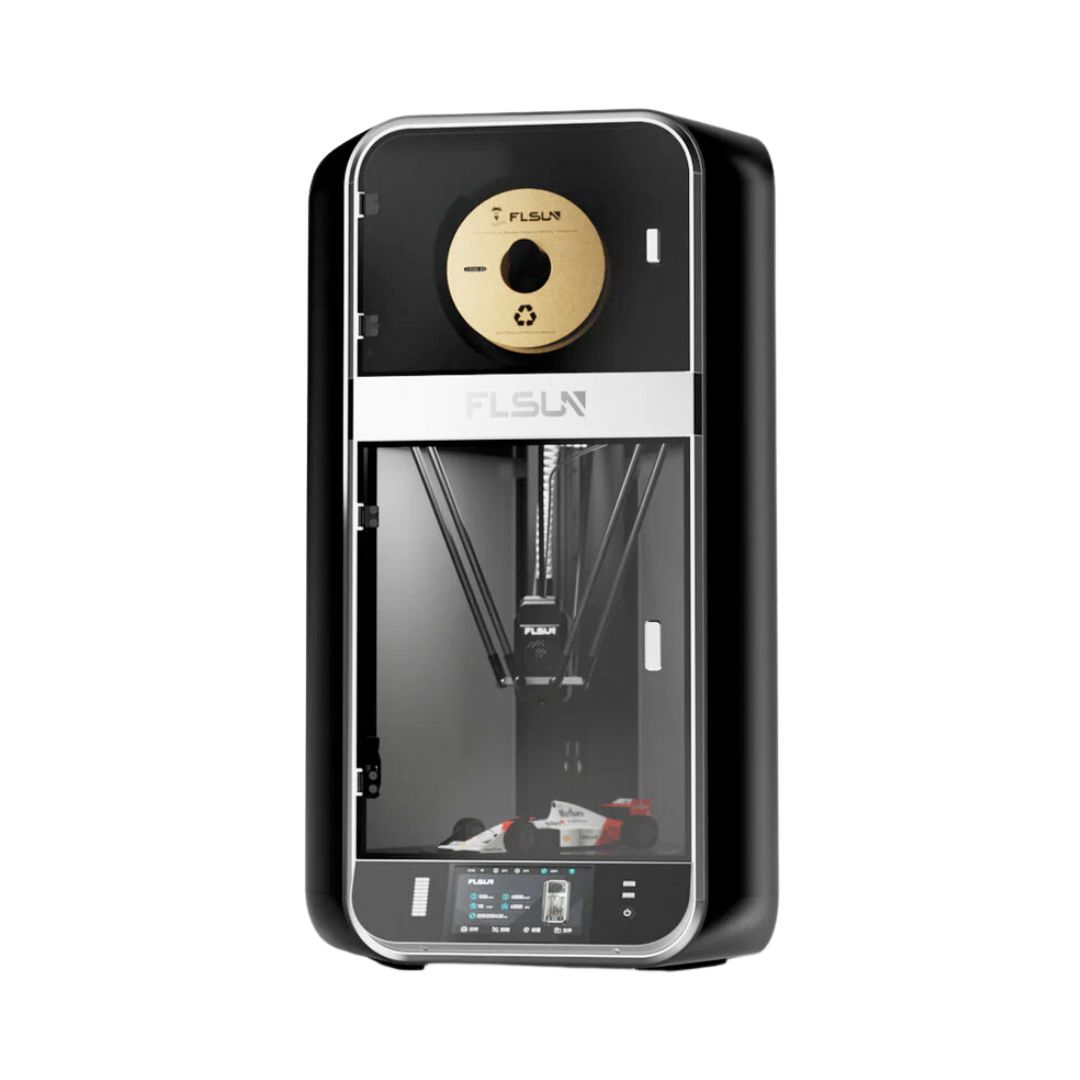Compare Neptune 4 PRO vs S1 PRO
Comparison between the best 3D printers
Choose the best 3D printer at the best price. The cheapest 3D printers are here.
Buy a 3D printer here with 3D Fila.
 |
 |
|
| Model | Neptune 4 PRO |
S1 PRO |
| Printing Material | Filament | Filament |
| Buy Filament for Elegoo Neptune 4 PRO | Buy Filament forFLSUN S1 PRO | |
| Estimated price | $359,00 | $1500,00 |
| Manufacturer | Elegoo | FLSUN |
| Release Year | 2023 | 2024 |
| Print Volume [mm] | 225x225x265 | 320x320x430 |
| Printer Size [mm] | 475x445x515 | 450x450x1200 |
| Weight [kg] | 8,9 | 41 |
| Power Loss Recovery | YES | YES |
| Enclosed printer | NO | YES |
| Bed Leveling | Automatic | Automatic |
| Filament End Sensor | YES | YES |
| Bed type | Heated | Heated |
| Power supply system | Direct Drive | Direct Drive |
| Standard nozzle | 0,4 | 0,4 |
| Maximum Nozzle Temperature [°C] | 300 | 350 |
| Maximum Bed Temperature [°C] | 110 | 120 |
| Maximum printing speed [mm/s] | 500 | 1200 |
| Filament holder | YES | YES |
| Camera for supervision | NO | NO |
| Recommended filaments | PLA, PLA+, TPU, PETG, Nylon, ABS | PLA, PETG, TPU, ABS, ASA, Nylon, PC, PP, HIPS |
| Recommended slicers | Bambu Studio, Super Slicer, Cura, Prusa Slicer, Orca | FLSun Slicer 2.0, Orca Slicer |
| Maximum Resolution [mm] | 0,1 | 0,01 |
| Processor | ARM 64 bit | |
| Display | Touchscreen 4,3'' | Touchscreen 7'' |
| Power Supply | 310 W | 500W 110-240V, 50/60HZ |
| Connectivity | USB, microSD | Wi-Fi, USB, app FL Sun World |
| Operating systems | Windows, Linux, Macbook | Windows, Mac |
| Date of registration in the system | 2024-07-02 | 2024-12-16 |
| Release date | 2023 | 2024 |
| Extra features | The Elegoo Neptune 4 Pro stands out for its advanced features, including pre-installed Klipper firmware, a dual-gear direct extruder with a 5.2:1 ratio, a high-temperature nozzle (up to 300°C), a flexible magnetic PEI platform, efficient cooling fans, and a 121-point auto-leveling system. The printer also features a 4.3-inch touchscreen interface, dual linear bars on the X and Y axes, and a segmented heated bed for energy savings. | The FLSUN S1 Pro is a high-speed Delta 3D printer, reaching up to 1200 mm/s with 40,000 mm/s² acceleration. It features a build volume of 320 mm (diameter) x 430 mm (height), a 350°C hotend, dual-zone heated bed up to 120°C, a 50°C heated chamber, and an active filament drying holder. It includes a camera for remote monitoring, integrated UPS for power-loss safety, a HEPA filter, and a 7 touchscreen interface. Perfect for large and complex projects. |
| Support for multiple colors and materials (AMS and CFS) | NO | NO |
Notes * |
||
| Cost-benefit | 7 / 10 | 7 / 10 |
| Hardware | 2.8 / 10 | 4.8 / 10 |
| Tela | . | . |
| Print volume | 3 / 10 | 4 / 10 |
| Performance | 4 / 10 | 9 / 10 |
Conclusion |
| In comparing the Elegoo Neptune 4 Pro and the FLSUN S1 Pro, it is evident that each 3D printer caters to different user needs and priorities. The Elegoo Neptune 4 Pro is a more budget-friendly option, making it an attractive choice for beginners or those on a tighter budget. Despite its lower price, it offers advanced features such as dual-gear direct extrusion, a high-temperature nozzle, efficient cooling, and a highly accurate auto-leveling system. Its print volume is adequate for a variety of projects, and with a maximum printing speed of 500 mm/s, it serves well for standard applications. On the other hand, the FLSUN S1 Pro is positioned as a premium offering, ideal for professionals or enthusiasts requiring larger print volumes and superior speed. It boasts a remarkable maximum printing speed of 1200 mm/s and a larger build capacity, facilitating the printing of complex and sizable models. The printer is enclosed, which offers temperature stability and safety during operation. Additionally, it features a high-temperature hotend and a dual-zone heated bed, enhancing its versatility in working with various materials. In conclusion, the choice between these two printers should be guided by the user's specific needs. If budget and simplicity are the primary concerns, the Elegoo Neptune 4 Pro stands out as an excellent investment. However, for those in need of high-speed and high-capacity printing, the FLSUN S1 Pro justifies its higher price through enhanced performance and advanced features. Ultimately, both printers deliver solid performance, earning a similar cost-benefit rating, but their suitability will largely depend on the user's printing requirements and budget. |

